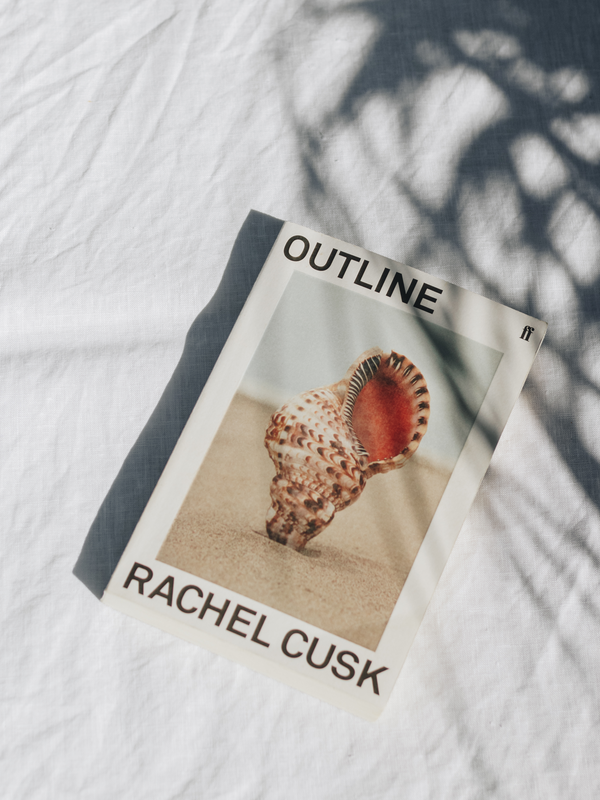Words: Ethan Potter
Set against the shimmering & sweltering heat of Summer in Athens, Rachel Cusk’s 2014 novel Outline (the first book in a trilogy of stories) presents a series of complex meditations on reality, set amongst a familiar circumstance - conversation.
In the wake of a life upheaval and dissolution of her marriage, our narrator, a novelist, travels to Greece to teach a week long writing workshop. Beginning unnamed and almost alarmingly space of description, the narrator begins her conversational journey on the London - Athens flight. Her seat mate divulges the flourish and eventual demise of his first two marriages at length, the narrator, although initially passive, begins to draw the line of dissection down the core of this novel. Opening the cut, the narrator takes an astute eye to the bias that lives within autobiography and shines a light into the very heart of ones connection to their own perceived reality. This line continues to be cut throughout the narrators stay in Athens, crossing strangers and students alike, allowing tales of love, loss, family and success to pour forth onto the page. Each storyteller is pushed to look upon their story and bear witness to the threads of their very reality.
Through the vehicle of her sparsely formed Narrator, Cusk displays the power of silence as a tool of extraction. Leaving the protagonist free of description limits her noise in the world around her, amplifying the sound of the storytellers voice. The sharpness of the eye, ear and mind of our narrator begins to flourish in the chrysalis of the quiet observation. So often we are told that life’s greatest lessons are a product of action; Cusk permits a seat in the class of silent education, growth via listening and not leaping.
[quote-section-1]
With each story, the narrator begins to take form. Each biography traces another line on the previously shapeless narrator, creating an outline of self, familiar to us as readers. As this outline takes form, we are allowed the opportunity to implant themselves into the empty centre. Suddenly, the reader becomes the narrator too, allowing these conversations, often so identifiable to our sense of reality, to be filtered through the lens of introspection. An amphitheatre (akin to the classic beginnings of the Athenian locale) of voices are heard within the pages of Outline, yet it never feels too loud. Sitting in this outline, the reader is able to meditate on the rituals of daily life and how they speak to our deeper sense of self.
